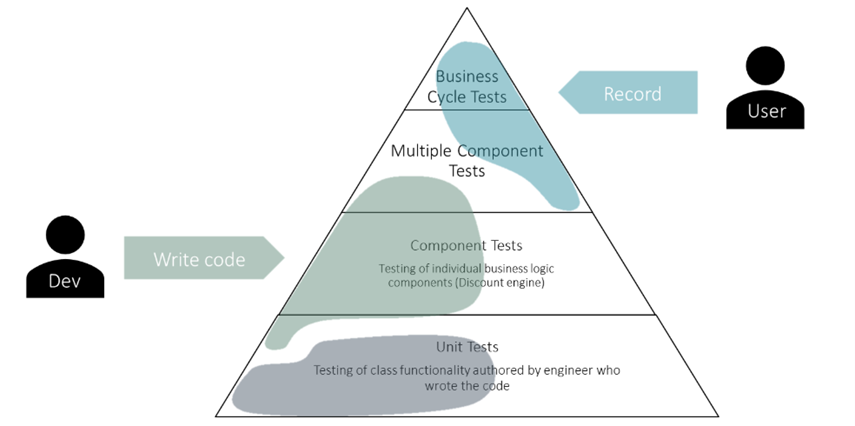Regression Suite Automation Tool in Dynamics 365 Finance
In this ERP [SOLVED] Series we demonstrate the unique features that Dynamics 365 can solve for your organisation.

10
February
2021
10 February, 2021
10 mins read - By Craig Cornish - Senior Manager - ERP
In this short article we provide an overview of what benefits the regression suite automation tool can have in your deployment of Dynamics 365 Finance and Supply Chain Management.
What is the Regression Suite Automation Tool in Dynamics 365 Finance and Supply Chain Management?
The Regression suite automation tool (RSAT) is the testing tool used to efficiently test Dynamics 365 Finance and Supply Chain Management (D365FSC) environments. RSAT enables functional power users to record business tasks with the Task recorder and then convert these recordings into a suite of automated tests. This removes the need to write complex source code for User Acceptance Testing (UAT). You can read more about Task recorder for Dynamics 354 Finance and Supply Chain Management (and task guides) here.
RSAT reduces testing costs and time for UAT. UAT is typically required before you take a Microsoft application update, or before you apply custom code and configurations to your production environment.
Regression tests can be integrated with the build process which ensures that test cases are run when the build is executed. This helps to identify early any existing business processes that are affected by the introduction of new code.
Components of the Regression Suite Automation Tool in Dynamics 365 Finance
RSAT is fully integrated with Microsoft Azure DevOps for test execution, reporting, and investigation. Test parameters are decoupled from test steps and stored in Microsoft Excel files. Below is how the components work together to ensure testing is automated efficiently:
- Business process modeler – Business processes are defined in life cycle services (LCS) under the business process modeler (BPM). BPM is optional and is predominantly used to manage and distribute test libraries across tenants.
- D365FSC – captures task recordings and uploads them to business process modeler. Task recordings can also be uploaded directly to Azure DevOps, skipping BPM.
- Azure DevOps – Syncs task cases from BPM. Test cases are then combined in a test suite.
- RSAT- Loads test cases from Azure DevOps to the RSAT tool. Configures test parameters and execute test cases.
Capabilities of the Regression Suite Automation Tool in Dynamics 365 Finance
- Field values can be validated.
- Values of variables can be saved and chaining of test cases is supported.
- The same test recording can be used with different parameter values.
- Messages and notifications can be validated.
Tips to keep in mind when using Regression Suite Automation Tool in Dynamics 365 Finance
- RSAT is not a tool for unit or component testing of individual customisations, but rather for business cycle or scenario testing, as per the diagram below:

- Capture validation of values and messages.
- Keep security in mind. You can change the test user on the General tab of the Excel parameter file. Specify the email ID of the user who will run the test case. This way, the test case can be run by using the security permissions of the specified user.
- To run the test in another company, you can change the company on the General tab of the Excel parameter file. Make sure that settings and data are available in the newly selected company.
- To wait before starting the test, you can define a pause on the General tab of the Excel parameter file. This pause can be used in a batch job (for example, if a workflow must be run before the next step can be performed.
Limitations of the Regression Suite Automation Tool in Dynamics 365 Finance and Supply Chain Management
Regression Suite Automation Tool (RSAT) cannot:
- Perform integration testing.
- Run multiple tests in parallel
- Playback refresh page
Conclusion
The Regression Suite Automation Tool in Dynamics 365 Finance can help your organisation with your UAT requirements. If your organisation has additional requirements that are not addressed in this article, feel free to reach out to myself or Veritec’s experienced ERP team and we can help you realise your potential. You can find out more information on our Enterprise Resource Planning solution page here.
